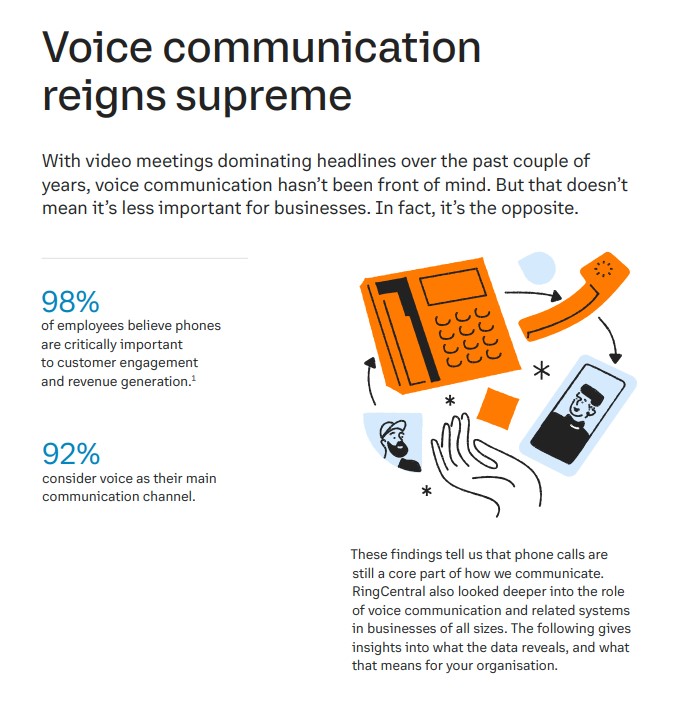Whether you moonlight as a spoken word artist, sing as a side hustle, or simply talk to customers and colleagues throughout the working day, the human voice holds real importance. World Voice Day (16th April) was set up as an awareness day for vocal health and as a celebration of the phenomenon of voice.
A brief history of World Voice Day
The unique and complex vocal system, and the capacity we have for language, are just some of the things that World Voice Day recognises. The voice is one of the things that allows us to convey meaning and emotional communication. It is a big part of academic disciplines such as psychology, neurology, cognition, linguistics and phonetics. Vocal pedagogy (the study of the art and science of voice instruction) and the expression of speech, sound and singing play a role in every relationship and culture across the globe.
In addition to this, it is an essential tool in daily work for around 30% of the world’s population.
The celebration of World Voice Day began with the intention to increase awareness of the importance of voice and improve education around voice problems. Initially starting out in Brazil in 1999 as the Brazilian National Voice Day, the event was an initiative founded by physicians, speech-language pathologists and singing teachers from the Brazilian Society of Laryngology and Voice. From there, the scheme reached Argentina, and Portugal, and then, recognised by the American Academy of Otolaryngology, became World Voice Day in 2002.

Why is voice communication still so important?
90% of business leaders prefer phone over other communications tools. In the aftermath of a global health crisis, at a time when remote workers sometimes feel isolated, voice communications have more relevance than ever before. Now, with fewer workers choosing a physical office workspace and 60% of employees worldwide working hybrid, forming and nurturing meaningful connections through communication has never been more crucial.
As younger workers are leading the quiet quitting trend, with more than 40% identifying as quiet quitting in Australia, France, the US, and the UK, finding ways to listen to worker sentiment has never been more crucial. In Australia in particular, it’s more likely that Gen Z will need to connect remotely, with this generation favouring flexible working (46%) compared with Baby Boomers (26%). Simply connecting more on a human level and improving employee mobility by making use of voice communications could help business leaders avoid losing their best young talent, and enable teams to connect regardless of their work preferences.
As business leaders make crucial decisions on the future of the workplace, the importance of voice communication should be a key consideration. Technological advancements in recent years have meant workers have access to great platforms and apps to keep in touch with colleagues and stay productive from wherever they choose to work. 72% say they rely “much more” or “somewhat more” on business communications and collaboration tools since the pandemic.
While many of us begin to lean more on instant messaging, email and collaboration channels via written communication, team managers must pay heed to the importance voice communications plays in our everyday lives.
We recently looked deeper into the role of voice communication and related systems in businesses of all sizes and found that Australian workers believe voice is the best communication mode after face-to-face to address loneliness at work.

Verbal communication and meaningful connection
So much of our day-to-day work relies on forming meaningful relationships. Whether it be with colleagues, customers, partners or other stakeholders, success at work depends on our ability to communicate effectively in one way or another, whether that’s written, verbal, video communications or face-to-face interactions.
Interestingly, the survey also revealed that 77% of workers believe they can successfully build personal relationships with co-workers without ever physically meeting them. In the same vein, 76% believed that connecting online through voice or video calls is as good as in-person for work-related tasks. As many employees miss the camaraderie with colleagues of in-office work, businesses need to find ways to facilitate the same sense of team spirit from a distance. Connecting via voice communications enables co-workers to feel sufficiently connected with work colleagues from afar, and be as productive and efficient in their work as they might have been in the office environment.
As 82% of workers say people who use voice communication will be more connected to one another, business owners must find ways to advocate phone communication and build it into their workplace cultures and routines in the future.
The importance of voice in customer service
Voice communication isn’t just indispensable when it comes to internal collaboration. 98% of employees believe phones are critically important to customer engagement. Building authentic, human-centric rapport with customers through digital means is also a real priority for forward-thinking businesses.
And, while there are several different ways for customers to connect with businesses today, studies show almost 90% of people prefer to speak to a customer service agent.
While IVR, chatbots and social channels have made customer service more accessible and efficient, it’s no replacement for real human contact. Being able to understand human emotion and vulnerability is something that’s integral, both for internal teams and for customer service. As businesses seek to meet ever-evolving customer demands, providing a human touch and tone of voice will still be crucial.

Why phone is still king
While voice comes into play for communications technology such as video, which workers have used increasingly in recent years, it’s still the phone that reigns supreme.
In fact, according to a recent enterprise communications report, which surveyed business leaders and tech decision makers on their technology use, over 90% of respondents claimed that phones are one of their main communication tools. 52% said it is their primary communication tool.
That’s because we use the humble phone call for almost everything. Businesses are using phones for internal calls (74%), external client calls (82%), vendor calls (70%), outbound customer calls (64%), and inbound customer service (52%). Voice communications is a well-engrained and integral part of how we do business, so despite a whole host of emerging communications technologies and channels, business phone usage isn’t showing signs of slowing down anytime soon.
The future of voice
While many predicted that phone calls might be trumped by new emerging technologies, it’s clear that voice technology isn’t going anywhere. According to this Future of Voice study, 98% of respondents claimed they expect their reliance on voice technology to increase if not stay the same.
With game-changing technologies such as conversational AI, 5G and voice-enabled hardware as well as more mobile innovations for voice calls, the technology that surrounds us will have voice usage baked in. Meaning it’s set to become more of a fixture in our daily lives.
As business communications increasingly move to the cloud, the reliability of voice technology has truly turned a corner. With providers offering service availability of 99.999% uptime, phone users don’t have to switch to typed messages or avoid phone calls for fear of a call dropping out. This means businesses don’t have to worry about business continuity, and customers can get through to a human voice on the other end of the line, should this be their channel of choice.
Voice technology is set to change the way you interact with your customers too, with solutions such as voice analytics allowing sales or customer service teams to analyse the emotions of a speaker, and even identify phrases or incentives that drive better results.
Voice communication is as powerful now as ever, and while team messaging tools and video meetings made the headlines in recent years, it is set to be the rising star of a hybrid working world.
Originally published 11 Apr, 2023, updated 28 Nov, 2023





